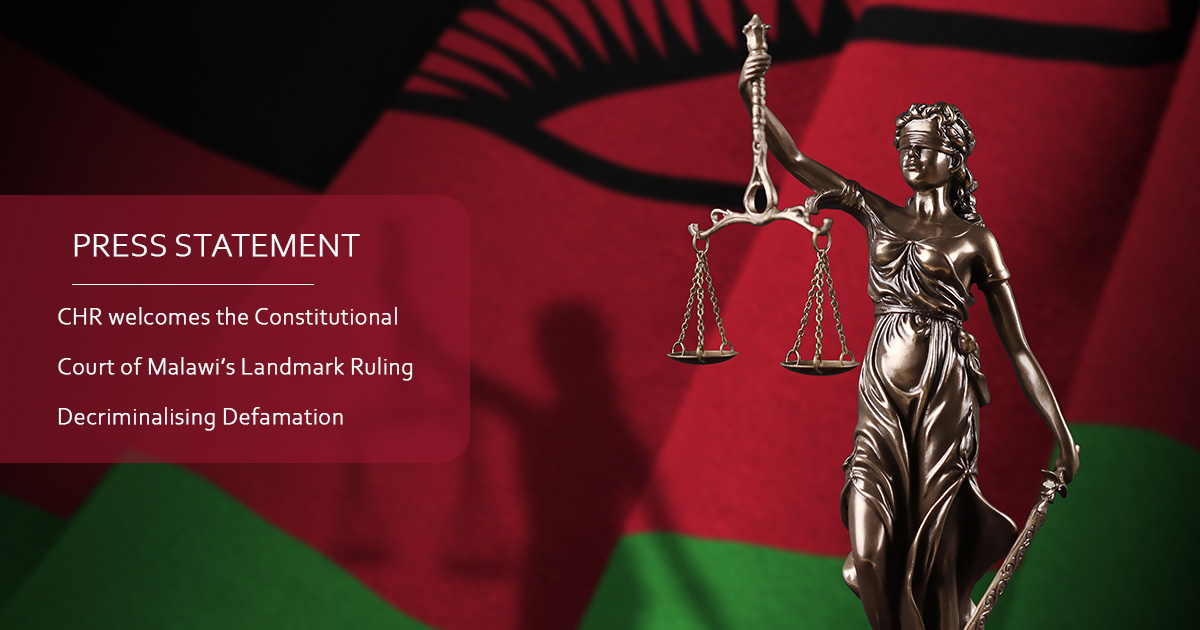Landmark Defamation Ruling in Malawi: A Victory for Freedom of Expression
The Centre for Human Rights, Faculty of Law, University of Pretoria, welcomes the landmark judgment handed down by the Constitutional Court of Malawi in the case of Joshua Chisa Mbele v The Director of Public Prosecutions & The Attorney General [2025] MWHC (Constitutional Referral No. 2 of 2024). This ruling marks a pivotal moment in the advancement of freedom of expression and digital rights across Africa, as it affirms that limitations on online speech must be narrowly tailored, lawful and proportionate, in line with constitutional and international human rights standards. By striking down overly broad provisions that criminalise “offensive” or dissenting speech in the digital space, the Court has sent a strong message against the suppression of online civic engagement. This ruling therefore strengthens the jurisprudence on freedom of expression and digital rights on the continent, paving the way for more open, inclusive and democratic online spaces across Africa.
In a bold and progressive decision, the Court, in July 2025, declared Section 200 of the Penal Code unconstitutional, effectively decriminalising defamation in Malawi. The provision had previously made it a criminal offence to publish defamatory statements, exposing individuals to prosecution and imprisonment. The Court held that civil remedies are sufficient to address reputational harm, and that criminalising defamation constitutes an unjustifiable restriction on free speech.
This ruling, which took immediate effect, prohibits any further prosecutions under Section 200 and sets a powerful precedent for other African jurisdictions grappling with outdated and punitive defamation laws.
This ruling also comes at a time when the African Commission on Human and Peoples’ Rights (ACHPR) has adopted two transformative resolutions ACHPR/Res.631 (LXXXII) 2025 and ACHPR/Res.630 (LXXXII) 2025 which aim to:
- Promote public interest content in digital spaces;
- Strengthen information integrity through independent fact-checking;
- Encourage human rights impact assessments by technology companies; and
- Ensure freedom of expression remains protected amid digital regulation.
Together, the Malawi decision and these ACHPR resolutions signal a growing continental commitment to reimagining digital spaces as platforms for truth, accountability, and democratic participation.
Call to Action
The Centre urges all stakeholders, particularly civil society, media practitioners, policymakers, and digital platforms to amplify the Malawi ruling and support the implementation of the ACHPR resolutions. These victories must be celebrated, shared, and built upon to ensure that freedom of expression is not only protected but strengthened across Africa’s digital landscape. The Centre encourages all stakeholders to continue to work toward a future where truth, diversity, and public interest are the cornerstones of Africa’s digital transformation.
For more information, please visit the Expression, Information and Digital Rights Unit
